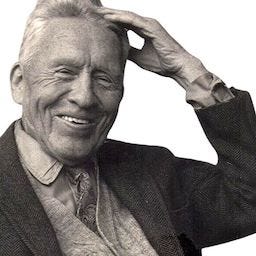The Shamcher Bulletin brings you snippets from Shamcher’s writings that might help frame and context our experience of the world we live in today.
This issue features some of Shamcher’s writings, along with memories from Sabira Scott.
April 26th and 29th
Shamcher Bryn Beorse was born April 26, 1896 and he passed away April 29, 1980. Especially this week, let’s each find our own way to remember him, think of his work, be in touch in intuition. Share a remembrance on social media, and think of him on his Urs, this Friday.
HAPPY BIRTHDAY Shamcher Bryn Beorse!
Shamcher was born on April 26th in Kristiania, Norway, in 1896. As a pupil of Hazrat Inayat Khan in the 1920s, he attended Summerschools in Suresnes and was first active in the Sufi centre in Kristiania (now Oslo.) His work as an engineer and economist took him throughout the world, where he performed Universal Worship and encouraged Sufi activities wherever possible (or even impossible.)
A spy in WWII, Shamcher volunteered for many dangerous missions, saying that at 44 he had lived his life, and the younger men should be given a chance to do the same. Settling in California after the war he wrote books on economics and worked on research for the promising OTEC system of benign solar power from the sea. With Sam Lewis and Paul Reps, Shamcher was one of the few original pupils of Inayat Khan in the Bay Area at that time. Shamcher always said he didn't believe in a fixed teacher/disciple relationship, yet he was devoted to Hazrat Inayat Khan his whole life, and had many loving students, often with widely divergent views and affiliations.
From Sabira Scott’s memories of Shamcher
“To me a Sufi teacher is one that meets you where you are and understands your mind and may say very little or nothing at all, but he PROJECTS into you what you need to know, and often more, which you can resolve and bring into order through the months and years as they pass.”
A meditation practice
“Your body is the whole universe. You ARE THE WHOLE UNIVERSE. You expand and contract as the universe—absorb all of the qualities of the universe; absorb and counter any negativity. Become the eyes and ears of every sentient being–feel the compassion, the sorrow, the pain, the joy, the bereavement, the hope, the despair… ”
Be a lamp unto yourself
Constant in Shamcher’s philosophy and advice was “Be a lamp unto yourself.” He did not believe that any person was a master to any other person. He said, “We overestimate the founders of the religions; and underestimate the present people.” Shamcher did not believe in hierarchy—only in the hierarchy of people doing what they did best—and because people felt capable and whole around him, they did do their best—they would come forward to excel because he lit the fire within each of us and helped us to discover what was already there.
Nothing
A man tried to get into a party. They said, “Who do you think you are? The Mayor?” “Oh no, more than that.” “Well, the president, then?” “Oh no, “More than that!” “ Maybe the Pope?” “More than that!” “Oh you think you are God? Nothing is greater than That!” “Yes, nothing – nothing is greater than God, and that is what I am!”
Direct Response
Whenever I say the morning prayer (Through the rays of the sun, through the waves of the air…) sweet energy flows through my veins, nerves, a direct response from whatever some call God. Why should he uglify life by replying in rigid words? What are words anyway? Words are your own creation and may be inspired from God but are not his words. We live by and with structures. Everybody constructs rigid concepts. They want “GOD” to come down and be embedded in some of these stupid concepts. So he does not even burp. It is not a matter of “faith”. What is faith? Often stupid structures. People listen to a preacher then go home to try out his willy-nilly theories. Can you live without words? Nor reading or writing? Not even knowing how perhaps? I have met people who could neither read nor write, in any language, yet knew God. Can you not know him if you can read or write? Of course, though not through that reading or writing. That would be unfair, to illiterates at least. “True wisdom is not found in any book” say the Chinese — then flood us with books, about I Chi, Acupuncture, Buddhism, Confucious, Lao Tze.
Meditation
From the newsletter, Sufis Speak
“Meditation is just thinking isn’t it? So why the long word?” This is a frequent remark. Meditation is a certain type of thinking. And this is just the beginning.
When you read a book, or skip through it, or when you listen to a lecture, this is not meditation. When you take out of a book or a lecture a thought or two, play with them in your mind, turn them around, look at them from all sides and try to build them into your mind as part of your mind, that is meditation. If you are planning a building or a trip, and particularly if you are not writing things down, but keep the entire picture in your mind while you work on it, that is meditation. When you repeat a well-known prayer without much thought, that is not meditation. Feeling is always a principal part of effective meditation. Actually there is no thought without feeling behind it. There is no life without feeling behind it, and no meditation.
A typical example is the morning prayer some people use. Addressing the Creative Force field that creates and maintains the world, you pray, “Through the rays of the sun, through the waves of the air, through the all-pervading life in space — purify and revivify me…” If, while saying this, you just see a moderately warm ball the size of the sun as you see it from here, you really don’t “meditate”. But if your own creative force rushes into the center of the sun and helps create a huge flaming body, so hot it nearly burns you (though in the non-physical force field heat does not really burn you, but your vivid imagination, sustained by physical experience may make you feel slightly burned) — then you know you are meditating and so effectively that may stretch your consciousness beyond what we have usually called mind.
Another sign is that if you meditate on or deeply think about a person who interests you, you may suddenly discover in your mind a concept of this person entirely different from what you have had. What is this? It may be the concept that person has of himself. You may have entered his mind. And it is at first a deflating experience for it shows you what a fool you had been before, thinking that what you thought or felt was reality, and the only one.
This concept that a person has of himself. and which you may share, through meditation, is still not all there is. Behind and in a sense inside that person is a force field that science is rediscovering today, a non-physical and autonomous system that created and now maintains him, and through meditation you may even be able to reach some of that and be very helpful to your friend, though it is doubtful he will at first accept your “help” and you better be careful and try and test again and again before you may be relatively sure you have a good thing.
Eventually, through meditation, you may be able to transcend what we have so far termed “mind” and this is the meaning of “transcendental meditation”. Today science realizes that there is a “non-physical” force field, but this non-physical reality is again divided into numberless stages of fineness. It isn’t really a matter of physical or non-physical. All of life is a vast system of force fields of finer and finer structure. “Non-physical” simply means that most people cannot observe this part of the system with their eyes or physical instruments. However, more and more electronic instruments can observe more and more “non-physical” systems. Through meditation some have penetrated deeper into these worlds than any instrument so far devised.
Meditation may develop to be not only cognitive but creative. What is at first imagination may be turned into reality or into non-physical or even physical systems. Was this the way the whole world was once created and is being maintained? Find out! Practice meditation until you know!
Meditation ought to be the very foundation of education, rather than the present copying of past follies. The ancient Yoga schools feel that this education should start at age 8 to have a chance of success. The perhaps equally ancient Sufis claim you should start before you are born. Future civilizations may do so, with results we can hardly imagine. Meanwhile you may begin any time and, and if persistent, go far.
Thanks for responding, sharing, and subscribing to these excerpts from the writings and archives of Shamcher Bryn Beorse.
A special hello to new subscribers - how good to find you here!
Feel free to reply to this email if you have Shamcher stories, photos or correspondence to share.
The Shamcher Bulletin is edited by Carol Sill. Link here to my personal newsletter.
If you like this post, please click the heart. And your comments are always welcome.







Happy Birthday & Urse Mu Barrak!
what a month for you.
Happy birthday dear Shamcher, still here with us in so many ways.